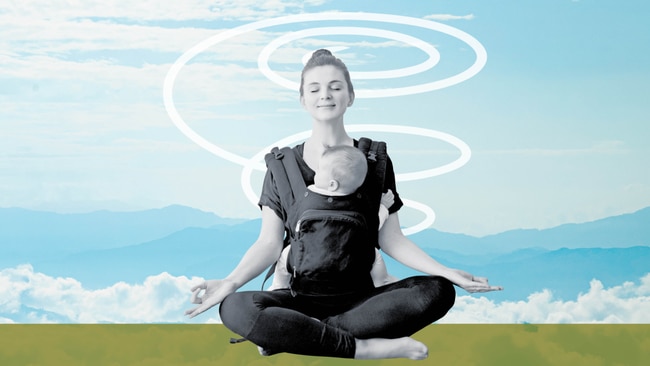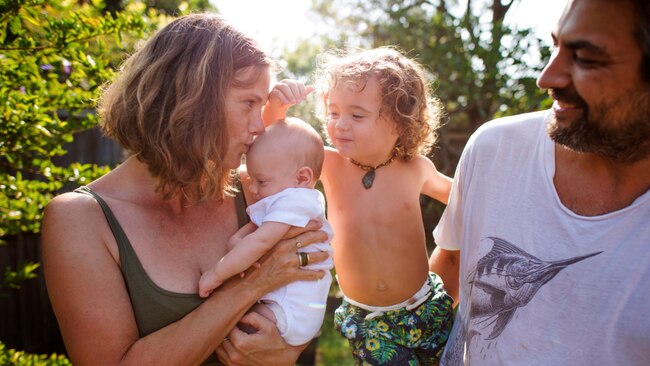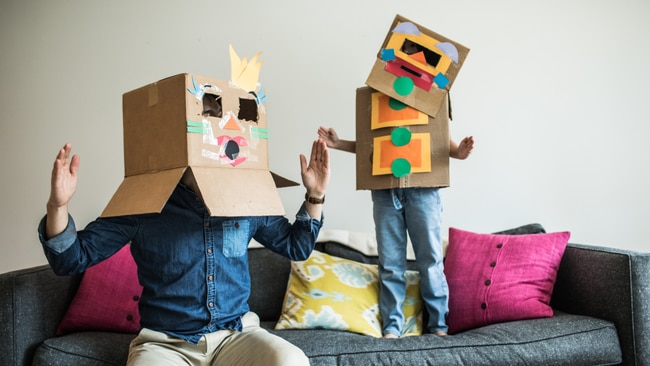Burnout retreats exist for exhausted parents who need a break
It's time to take a time out

Parenting
Don't miss out on the headlines from Parenting. Followed categories will be added to My News.
Work stress is on the rise, so is it time for exhausted mums and dads to be prescribed a reprieve? Germany says yes. But will Australia follow?
Raising children is easy – said no one ever. But what is genuinely surprising? That, despite all the conveniences of modern living, research points to parenting in 2023 being harder than ever.
According to American social scientist Sharon Hays, who’s spent decades researching the topic, raising kids in our modern world is a “child-centred, expert-guided, emotionally absorbing, labour-intensive and financially expensive” endeavour.
Throw work juggles, running a home under cost-of-living pressures, maintaining relationships while often caring for ageing parents into the mix, and it’s little wonder that mums and dads are burning out at record numbers.
Like what you see? Sign up to our bodyandsoul.com.au newsletter for more stories like this.
Last year, Australia’s Parenting Research Centre (PRC) found that almost 50 per cent of parents today are experiencing ‘psychological distress’ – with distress levels being ‘very high’ for seven per cent. Three in five parents do nothing to relax, two in three don’t get enough sleep, and one in six is ashamed of feeling burnt out.
“Parents were feeling that they couldn’t rest, they had to be everything to everybody and they couldn’t take time off for self-care,” says Catherine Wade, a principal research specialist at PRC, which is located in Sydney.
“Parents are human beings who don’t have all the answers, but, unrealistically, they believe they have to be perfect.”
So what can be done to help? The German government has a novel idea some Aussie experts (not to mention parents) are hoping will catch on here, where pressured parents are prescribed a ‘Kur’ – a three-week retreat that has been curated specifically to get on top of parental burnout.

Distressed German mums and dads on the verge of slipping into the abyss are legally entitled to a GP-prescribed break, funded mostly by health insurance.
How it works? They’re assessed by medical experts, then join activities including exercise, meditation and therapy sessions that supply them with strategies to manage stress and improve frayed nerves and relationships.
In most cases, parents spend the morning healing themselves while their children are cared for by retreat staff. During the afternoon, they reunite with their kids to practice what they’ve learned.
“I strongly support offering something similar in Australia – particularly with a focus on prevention and early intervention,” says Associate Professor Liz Westrup from Deakin University’s Centre for Social and Early Emotional Development.
“Parents push on without having any idea of the effect that pressures they’re experiencing are having on their mental health and wellbeing.”

Family coach, Helene Gatland, who was the first person in Australia to complete the Training Institute for Parental Burnout certification program, also says a German-style retreat is urgently needed.
“Treating parental burnout isn’t like having a massage for back pain – where you often feel better immediately afterwards but then the pain returns,” she says. “Treatment needs to focus on longer-term impacts.”
But until the Kur catches on Down Under? There’s huge value in parents carving out time for themselves each day, even if it’s just allowing themselves to be alone, according to Wade.
“But we also need to relieve pressures on parents by countering myths around perfect child rearing, and by valuing parents for the important role they play every day.”
Originally published as Burnout retreats exist for exhausted parents who need a break


